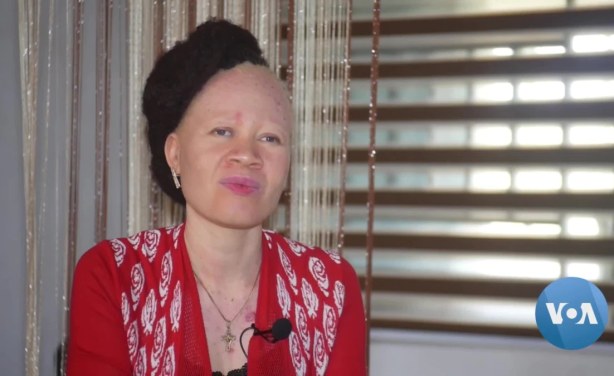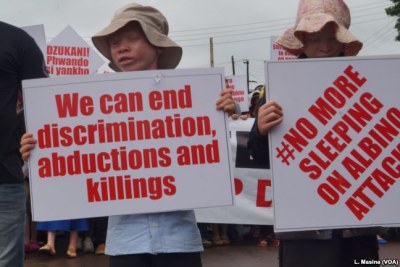-
Nigeria: Nigerians With Albinism Demand Authorities Restore Free Cancer Treatment
VOA, 26 May 2022
Nigerian Cynthia Ukachi, who has albinism, first noticed the changes on her skin in 2018. When she went to the hospital, she was told it was an early stage of skin cancer, and that… Read more »
Nigerians With Albinism Demand Free Cancer Treatment
Without government support, about 4 million people living with albinism in Nigeria could be at risk of skin cancer, according to aid groups.
Medical experts say that people living with the condition in sub-Saharan Africa are a thousand times more likely than the general population to develop skin cancer because of the partial or complete absence of melanin, a pigment responsible for eye, hair, and skin colour.
There is no cure for the absence of melanin which is central to albinism. Activists for people with albinism say stigma keeps surrounding those with the condition, despite calls for social acceptance. In some communities, people with albinism are hunted for rituals and their body parts sold for "good luck".
In Nigeria, myths and discrimination associated with the condition make it far more difficult for people with the condition to find employment, let alone afford skin cancer treatment.
InFocus
-
Albinism is a rare, non-contagious, genetically inherited difference present at birth. In almost all types of albinism, both parents must carry the gene for it to be passed on, ... Read more »

Nigerian Cynthia Ukachi, who has albinism, first noticed the changes on her skin in 2018. When she went to the hospital, she was told it was an early stage of skin cancer, and that it had started because of exposure to the sun.


